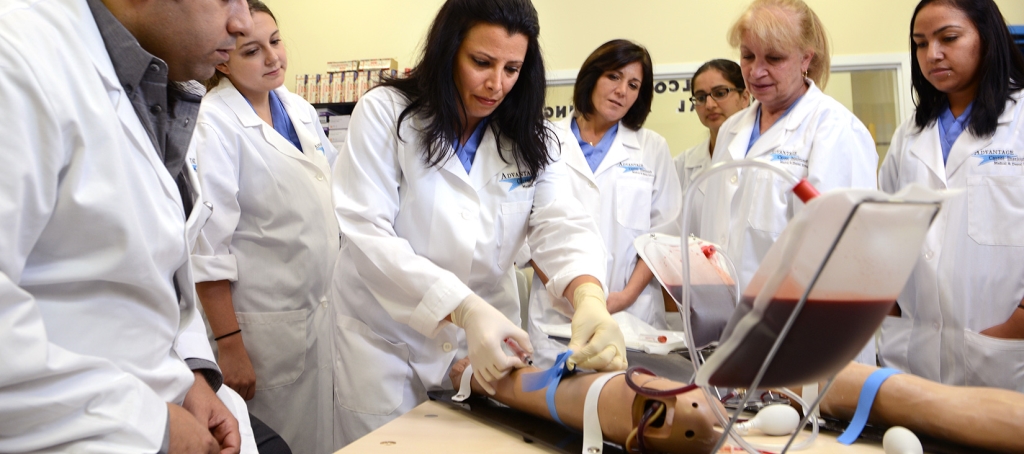Become a Skilled EKG & Phlebotomy Technician: Career Tips & Certification Insights
If you’re interested in launching a rewarding healthcare career, becoming an EKG and Phlebotomy technician can be an excellent choice.These roles are essential in medical settings,from hospitals to outpatient clinics,providing vital diagnostic services. In this extensive guide, you’ll find practical tips, certification data, and insights to help you succeed in this dynamic field.
Introduction
Healthcare careers are among the fastest-growing professions, driven by aging populations and ongoing medical advancements. EKG (Electrocardiogram) and Phlebotomy technicians play a crucial role in diagnosing and monitoring patient health. By mastering these skills and obtaining proper certification, you can enjoy a fulfilling job with opportunities for growth and stability. Weather you’re just starting or looking to advance your healthcare career, this article provides actionable tips to become a skilled EKG & Phlebotomy technician.
What Does an EKG & Phlebotomy Technician Do?
Understanding the roles and responsibilities of EKG and Phlebotomy technicians is essential before diving into certification pathways.
EKG Technician
- Perform electrocardiograms to monitor heart activity
- Prepare patients and operate EKG machines accurately
- Record and analyze cardiac rhythms for physicians
- Maintain equipment and patient records
Phlebotomy Technician
- Draw blood samples safely and efficiently
- Label, process, and transport specimens to laboratories
- Ensure patient comfort and safety during blood collection
- Maintain sterile techniques and proper documentation
Benefits of Becoming an EKG & Phlebotomy Technician
Pursuing a career as an EKG and Phlebotomy technician offers numerous advantages, including:
- High Demand: Healthcare facilities consistently seek skilled technicians.
- Short Training Periods: Certification programs often take less than a year.
- Entry-Level Opportunities: Ideal for those starting their healthcare journey.
- career Flexibility: Work in hospitals, clinics, outpatient labs, and more.
- Job Satisfaction: Directly contributing to patient care and outcomes.
How to Become a Certified EKG & Phlebotomy Technician
Obtaining certification is a pivotal step in establishing your credibility and advancing your career. Here’s a step-by-step guide to becoming certified:
Step 1: Meet Prerequisites
- High school diploma or GED
- Basic understanding of healthcare principles
- Possibly a background check depending on the state or employer
Step 2: Enroll in a Certified Training Program
Look for accredited programs that offer comprehensive instruction in both EKG and Phlebotomy techniques. Course durations vary,but typically range from 4 to 12 weeks.
Step 3: Complete Hands-on training
- Practice venipuncture, capillary punctures, and EKG procedures
- Gain real-world experience through clinical rotations or externships
Step 4: Obtain Certification
Certification options include:
| Certification Body | Certificate Name | Requirements |
|---|---|---|
| American Society of Phlebotomy Technicians (ASPT) | certified Phlebotomy Technician (CPT) | Completion of accredited program + exam |
| National Healthcareer association (NHA) | Certified EKG technician (CET) & Phlebotomy Technician (CPT) | Training + exam |
| American Society of Phlebotomy Technicians (ASPT) | Certified EKG technician (AEKG) | Training + exam |
Step 5: Maintain Certification and Continue Education
Most certifications require renewal every 2 years, often through continuing education (CE). Staying updated with the latest practices enhances your skills and career prospects.
Practical Tips for Aspiring EKG & Phlebotomy Technicians
- Develop Strong Interpersonal Skills: Comfort and reassurance are key when dealing with patients.
- Gain Hands-On Experience: Volunteer or seek internships to build confidence and proficiency.
- Invest in Quality Equipment and Training: Proper technique ensures accuracy and safety.
- Stay Organized: Accurate record-keeping is vital in healthcare.
- Join Professional Associations: Networking can lead to job opportunities and professional growth.
Case Studies: Success Stories in EKG & Phlebotomy careers
Consider Emily’s journey: After completing a 6-week phlebotomy certification program, she secured a position in a large outpatient clinic. Her compassionate approach and technical skills led to rapid promotions, ultimately managing a team of technicians. Such success stories illustrate the rewarding potential of this career path when combined with dedication and ongoing education.
First-hand Experiences from EKG & Phlebotomy Technicians
Manny professionals highlight the importance of patient communication and attention to detail. As a notable example, John, a certified EKG technician, shares: “Taking time to explain procedures puts patients at ease and improves the quality of the diagnostic images.” Practical experience and patient-centered care are at the heart of success in this field.
Conclusion
Embarking on a career as an EKG and Phlebotomy technician can be an excellent choice for healthcare enthusiasts seeking a meaningful and flexible profession. By understanding the certification pathways,honing practical skills,and staying committed to continuing education,you can become a highly skilled technician with abundant job opportunities. Remember, your dedication not only benefits your career but also positively impacts patient lives every day. start your journey today and unlock a future in vital healthcare services!
Ready to Start? Take action Now!
If you’re eager to get certified and kickstart your career, research accredited training programs in your area, connect with professional associations, and set your goals. the healthcare industry always needs dedicated technicians like you. Your path to a fulfilling and stable career is just a certification away!
